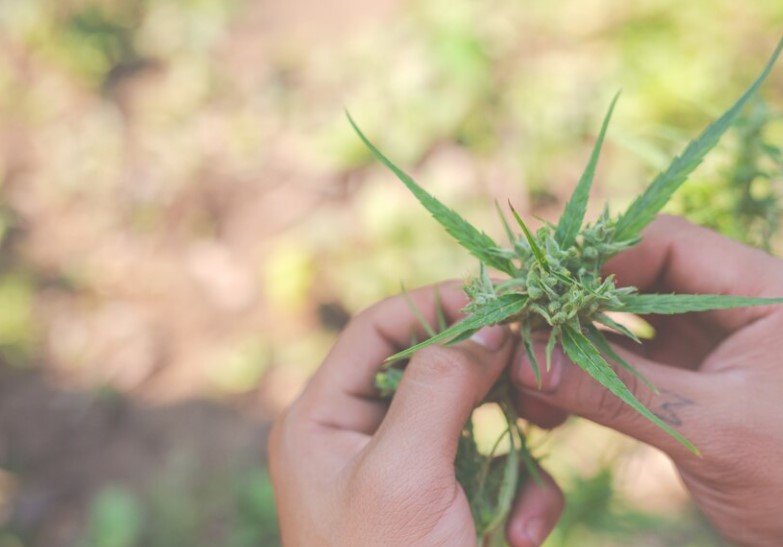Missouri legislators are debating the future of hemp regulation in the state, with three competing bills introduced this session to address growing concerns over the hemp industry. The proposed regulations vary in scope and focus, setting the stage for a heated debate among lawmakers, trade associations, and industry stakeholders.
Hovis’ Proposal Targets Hemp Beverages
State Rep. Barry Hovis, a Republican representing Missouri District 146, has put forward a proposal to regulate hemp-derived beverages. The bill suggests implementing the same three-tier distribution system that has long governed Missouri’s alcohol industry.
The three-tier system separates alcohol production, distribution, and retail, ensuring that manufacturers cannot sell directly to retailers or consumers. This would extend to hemp beverages under Hovis’ bill.
The Missouri Beer Wholesalers Association has thrown its support behind Hovis’ proposal, arguing that regulation will bring order to a burgeoning market. However, the Missouri Hemp Trade Association has voiced opposition, saying that imposing such systems on hemp-derived drinks could create unnecessary bottlenecks for producers and retailers.
The core of the disagreement revolves around the state’s treatment of hemp versus alcohol. For now, Hovis’ bill remains narrowly focused on beverages, leaving other hemp products like edibles and vapes outside its scope.

Hinman’s Broader Bill Draws Criticism Over THC Limits
In contrast, Rep. Dave Hinman, a Republican from District 103, has introduced legislation that takes a broader approach. His proposal would regulate not just beverages but also edibles, tinctures, and vapes—categories that have fueled much of the controversy in the hemp market.
The bill also outlines specific potency caps for THC levels in hemp-derived products. However, these limits have sparked backlash from the Missouri Hemp Trade Association, which argues that the proposed caps are unrealistically low and would stifle the industry.
A spokesperson for the hemp trade group noted, “Producers and consumers alike need a fair regulatory environment, not arbitrary restrictions that favor certain sectors over others.”
For now, Hinman’s bill attempts to strike a balance between safety concerns and market regulation, but its potential impact on small businesses remains a key talking point.
Schroer’s Proposal: A Tough Stance on Intoxicating Hemp
The strictest of the three bills comes from state Sen. Nick Schroer, a Republican representing District 2. Schroer has again introduced legislation that would ban most intoxicating hemp products. Under his proposal, only products meeting specific criteria would be allowed for sale, and those would need to be sold exclusively through licensed medical marijuana dispensaries.
This approach has garnered support from the Missouri Cannabis Trade Association, which views dispensary sales as a way to ensure tighter control and safety. However, Schroer’s proposal has raised alarms for businesses that rely on open-market sales of hemp-derived products.
The bill, if passed, could lead to a significant shake-up in Missouri’s hemp market. Products like Delta-8 and Delta-10 THC, which have become popular nationwide, would likely be eliminated or heavily restricted.
A Shared Regulatory Body for All Proposals
Despite their differences, all three bills share one key element: they would place regulatory oversight in the hands of the Division of Alcohol and Tobacco Control. This move comes as Missouri seeks to establish a unified licensing and enforcement system for hemp products, much like the framework already in place for alcohol and tobacco.
The division would be tasked with issuing licenses, monitoring operators, and ensuring compliance with state regulations. Supporters believe this consolidation will streamline enforcement and protect consumers, while critics worry it could add bureaucratic hurdles for hemp businesses.
Governor Parson’s Previous Ban and the Current Debate
The new proposals follow months of turmoil in Missouri’s hemp market. In September, Gov. Mike Parson directed the state’s Department of Health & Senior Services (DHSS) to remove intoxicating hemp products from store shelves. Parson cited concerns over youth access, insufficient research, and health risks.
However, Parson’s move came after a contentious back-and-forth with Missouri Secretary of State Jay Ashcroft, who rejected the governor’s earlier attempt to ban hemp-derived THC via executive order. Ashcroft argued that Parson’s ban overstepped the bounds of executive authority.
As lawmakers debated and enforcement priorities shifted, the sale of intoxicating hemp products resumed in late September. This period of uncertainty has fueled calls for a clear regulatory framework—something lawmakers now aim to deliver.
What’s Next for the Hemp Industry in Missouri?
Missouri’s hemp industry finds itself at a crossroads. The three bills represent differing visions for regulation, from Hovis’ narrow focus on beverages to Schroer’s stricter dispensary-only model. The coming weeks will likely see intense lobbying from industry players, trade associations, and consumer advocacy groups.
Stakeholders will watch closely as lawmakers debate the future of hemp-derived cannabinoids—products that have become increasingly popular but remain controversial due to their psychoactive effects.
For now, the battle lines are drawn, and the fate of Missouri’s hemp market rests in the hands of its legislators.
